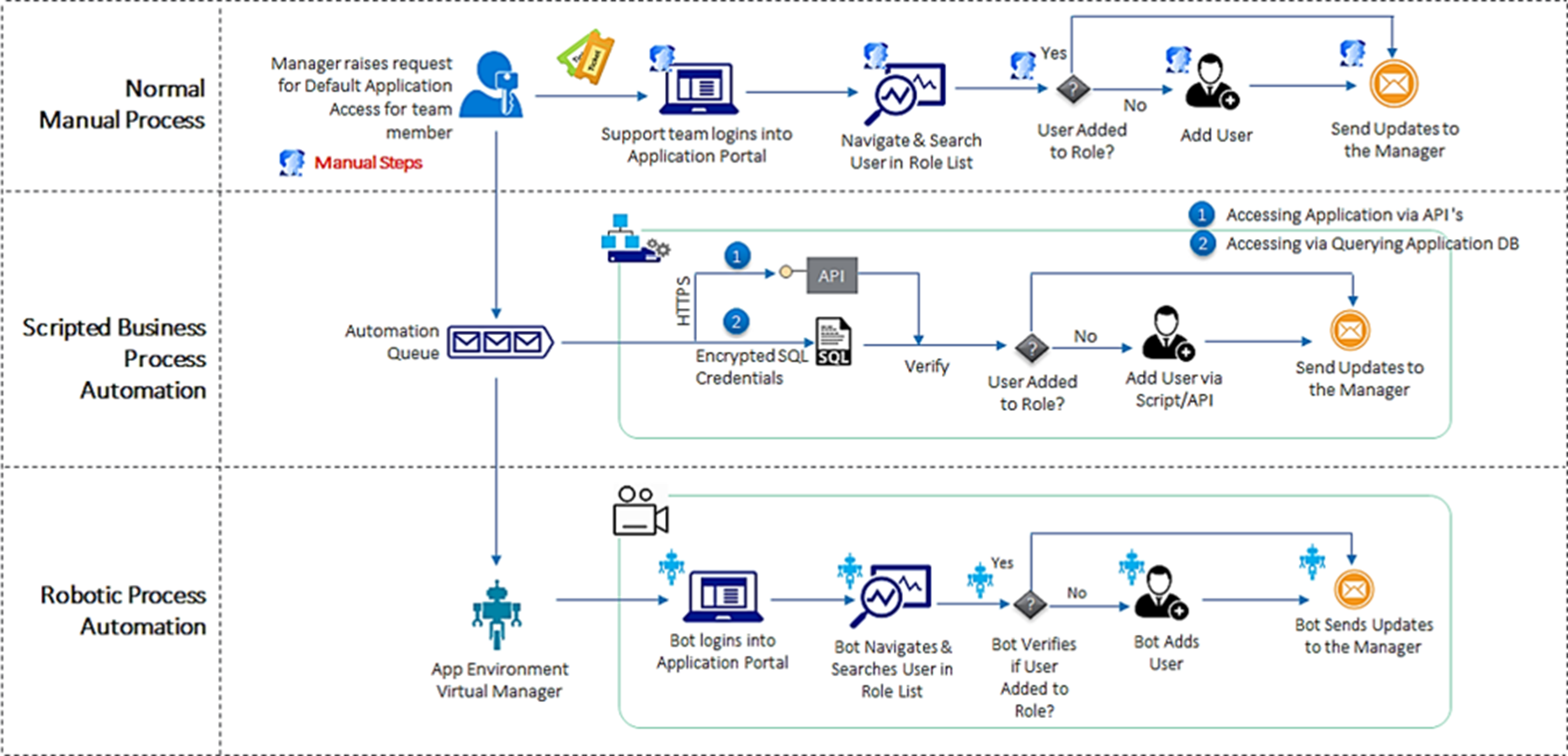Robotic Process Automation
What is Robotic Process Automation (RPA)?
Robotic Process Automation is the technology that allows anyone today to configure an software application to mimic and integrate the actions of a human interacting within digital systems to execute a business process. RPA is emerging form of business process automation technology based on the notion of metaphorical software robots or artificial intelligence workers. RPA robots utilize the user interface to capture data and manipulate applications just like humans do. They interpret, trigger responses and communicate with other applications in order to perform on a large variety of repetitive tasks with accuracy without human intervention.
Is there difference between Robotic Process Automation (RPA) and Business Process Management (BPM)?
Each business has a series of tasks, events, and decisions that move work from start to completion through business processes. BPM is a holistic approach to optimize and automate business processes, while RPA deals with discreet, repetitive tasks. These tasks typically occur at the start of a process, so RPA can play a significant role in automating these. BPM is end-to-end, so while RPA can be part of a BPM approach, it will not replace BPM
How does Robotic Process Automation (RPA) work?

Business benefits of RPA:
Better accuracy:
Robotic Process Automation software robots are programmed to follow rules. They never get tired and never make mistakes. They are compliant and consistent.
Improved compliance:
Once instructed, RPA robots execute reliably, reducing risk. Everything they do is monitored. You have the full control to operate in accordance with existing regulations and standards.
Fast cost savings:
RPA can reduce processing costs by up to 80%. In less than 12 months, most enterprises already have a positive return on investment, and potential further accumulative cost reductions can reach 20% in time.
Super scalable:
Across business units and geographies, RPA performs a massive amount of operations in parallel, from desktop to cloud environments. Additional robots can be deployed quickly with minimal costs, according to work flux and seasonality.
Increased speed and productivity:
Employees are the first to appreciate the benefits of RPA as it removes non-value-add activities and relieves them from the rising pressure of work.
References
https://www.uipath.com/solutions/whitepapershttps://solutionsreview.com/business-process-management/difference-between-rpa-and-bpm/